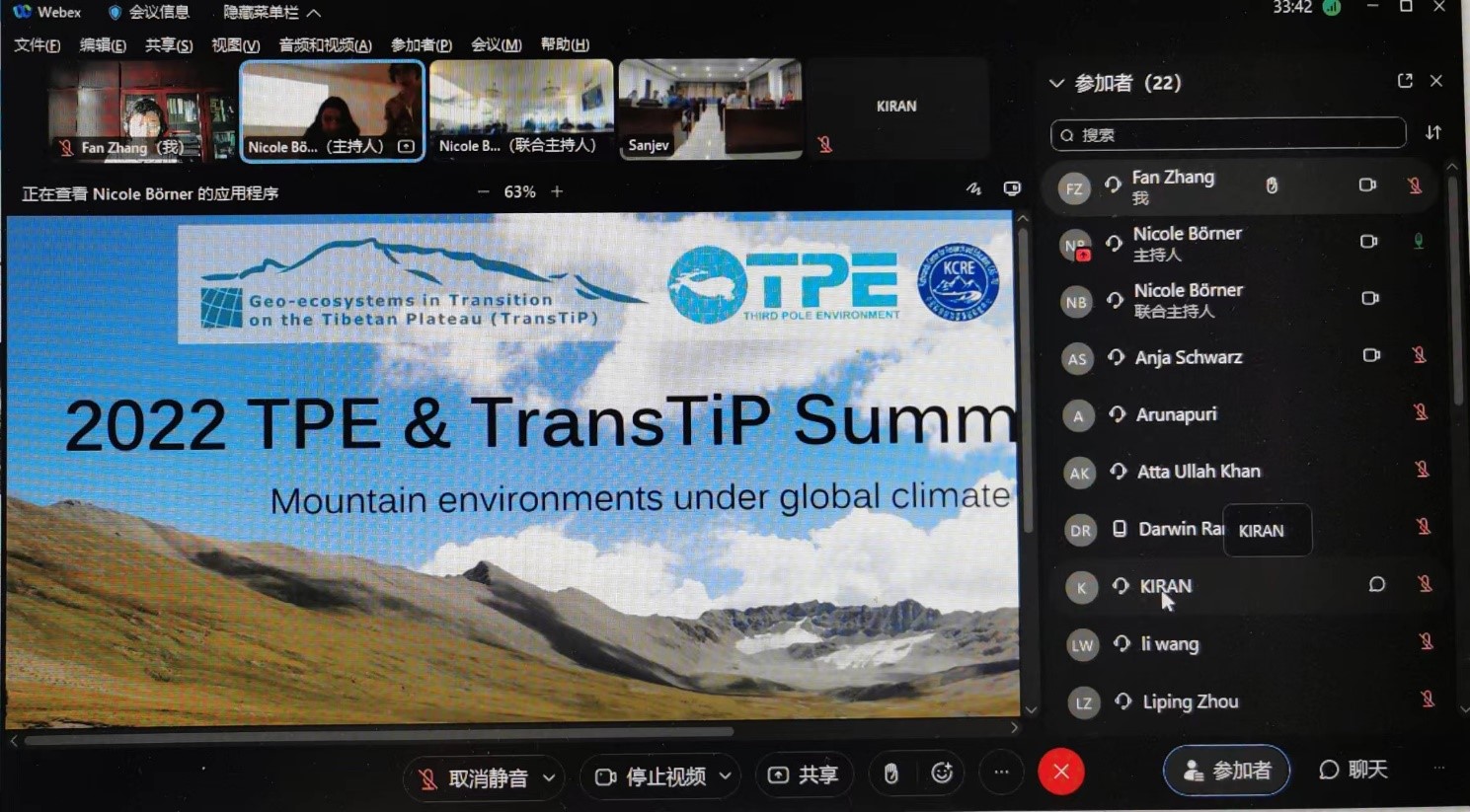2022 TPE & TransTiP Science & Technology Training, sponsored by the Chinese Academy of Sciences (CAS), organized by the Third Pole Environment (TPE) program and the IRTG Geo-ecosystems in Transition on the Tibetan Plateau (TransTiP), supported by the Institute of Tibetan Plateau Research, CAS (ITPCAS), the Chinese Academy of Sciences-Tribhuvan University (CAS-TU) Kathmandu Center for Research and Education (KCRE) and the China Society on Tibetan Plateau Research (CSTP), was held successfully. There were about 68 participants from universities and research institutions in 7 countries, including China, Germany, Nepal, Pakistan, Bangladesh, Iran, India, etc.
The 12-day training with the theme of Mountain environments under global climate change started on 11th to 22nd July 2022, including 15 lectures online. During the training, a total of 18 prominent scientists from the international scientific community were invited to introduce the latest methods, technology and achievements on different themes of Third Pole Environment research in glaciology, hydrology, environmental change, ecology and human activities. Prof. Eryuan Liang from ITPCAS and Prof. Deepak Aryal from KCRE delivered oral lectures online for international participants.
In the context of the global COVID-19 epidemic, TPE actively explored a new paradigm of innovative international cooperation, exploiting the geographic advantages of the TransTiP program in Germany and the KCRE in Nepal. Parallel offline training sessions have been set up in Waldachtal, Germany and Kathmandu, Nepal, establishing a new model integrating offline and online training together. Two field excursions were organized in Germany to the northern part of the Waldachtal Black Forest.
The training promoted scientific exchange to facilitate the implementation of the TPE program and cooperation among the Pan-Third Pole countries. The training also acquainted young scientists, who work at the forefront of scientific research, with cutting-edge knowledge to help them broaden their scientific horizons and improve their scientific capability.



